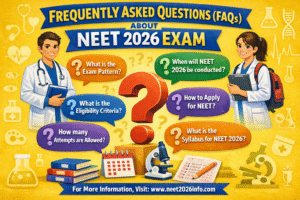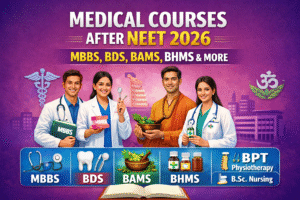General Studies Paper 2 (GS-2) in UPSC Mains primarily focuses on Governance, Constitution, Polity, Social Justice, and International Relations. It is a dynamic and analytical paper that requires conceptual clarity and updated knowledge from current affairs.
This article provides the detailed syllabus, booklist, and an effective preparation strategy for scoring well in GS Paper 2.
UPSC Mains GS-2 Exam Pattern
| Paper | Marks | Duration | Question Type |
|---|---|---|---|
| GS Paper 2 | 250 Marks | 3 Hours | Descriptive (Essay Type) |
- The answers should be analytical and well-structured.
- Current affairs play a significant role in answering questions.
UPSC Mains GS-2 Syllabus (Official)
The GS-2 syllabus is broadly categorized into the following four major sections:
1. Indian Constitution & Polity
- Historical background & evolution of the Constitution.
- Features, amendments, and significant provisions of the Indian Constitution.
- Separation of powers between different branches of government.
- Judiciary, Executive, and Legislature – Functions & responsibilities.
- Constitutional & Non-Constitutional Bodies – UPSC, CAG, Election Commission, etc.
- Important Articles, Schedules, and Landmark Judgments.
2. Governance & Social Justice
- Governance & Public Administration – Role of bureaucracy, e-Governance.
- Transparency & Accountability – RTI, Lokpal, Lokayukta, Whistleblower Protection Act.
- Social Justice Issues – Poverty, Education, Health, Gender Equality, etc.
- Welfare Schemes for vulnerable sections – SCs, STs, OBCs, Women, Elderly.
- Role of NGOs, SHGs, and Civil Society in governance.
3. International Relations
- India’s relations with neighboring countries – China, Pakistan, Bangladesh, Sri Lanka, etc.
- India and Global Institutions – UN, WTO, WHO, IMF, World Bank.
- India’s Foreign Policy – Act East, Look West, Neighbourhood First Policy.
- Global and Regional Groupings – BRICS, QUAD, SAARC, ASEAN, G20.
- India’s role in International Organizations – UN Peacekeeping, Climate Change Agreements.
4. Current Affairs & Policy Analysis
- Recent amendments, bills, and Supreme Court judgments.
- Policies related to governance, human rights, and environment.
- India’s response to global events and diplomacy.
How to Prepare for UPSC Mains GS Paper 2?
A well-structured approach that integrates static concepts and current affairs is key to mastering GS Paper 2.
1. Indian Constitution & Polity
📌 Focus Areas:
- Fundamental Rights & Duties, Directive Principles of State Policy (DPSP).
- Federalism and Center-State Relations.
- Constitutional Amendments & Landmark Supreme Court Judgments.
📚 Recommended Books:
- M. Laxmikanth – Indian Polity (Best for conceptual clarity).
- DD Basu – Introduction to the Constitution of India (For deeper understanding).
- Subhash Kashyap – Our Constitution & Our Parliament (For analysis).
✍ Preparation Tips:
✅ Make notes of important articles and amendments.
✅ Follow recent Supreme Court judgments.
✅ Solve previous year questions to understand answer framing.
2. Governance & Social Justice
📌 Focus Areas:
- Role of Civil Services in Democracy.
- Good Governance Initiatives (e-Governance, RTI, Lokpal, etc.).
- Welfare Schemes & Policies – Health, Education, Employment, Women Empowerment.
📚 Recommended Books:
- 2nd ARC Report on Governance – Best for administrative concepts.
- Current Affairs (The Hindu, PIB, PRS India) – Essential for policy analysis.
✍ Preparation Tips:
✅ Use case studies (like Aadhaar, Digital India, Swachh Bharat).
✅ Analyze policies using pros & cons approach.
✅ Refer to government websites for authentic data.
3. International Relations (IR)
📌 Focus Areas:
- India’s Foreign Policy Goals (Strategic Autonomy, Non-Alignment, Multilateralism).
- India’s bilateral relations with major countries (USA, Russia, China, Japan, etc.).
- India’s role in regional and global institutions (UN, WTO, BRICS, SAARC, etc.).
- Recent Geopolitical Developments – Indo-Pacific Strategy, QUAD, G20, etc.
📚 Recommended Books:
- Pavneet Singh – International Relations (Best for conceptual clarity).
- Rajiv Sikri – Challenge and Strategy (For foreign policy analysis).
- Current Affairs – The Hindu, MEA website, Rajya Sabha TV.
✍ Preparation Tips:
✅ Link IR topics with GS-1 History (Colonialism, World Wars, Cold War, etc.).
✅ Use diagrams and flowcharts (like India’s strategic partnerships).
✅ Track India’s foreign policy speeches and agreements.
Answer Writing Strategy for GS-2
📌 Key Points:
✔ Introduction – Define the topic or provide a fact.
✔ Body – Use subheadings, diagrams, flowcharts, examples.
✔ Conclusion – Suggest a way forward (Government Initiatives, International Examples).
📝 Example Answer:
Q: Discuss the role of the Election Commission in ensuring free and fair elections in India.
✔ Introduction: Define the role of the Election Commission.
✔ Body:
- Powers and Functions – Conducting elections, enforcing MCC.
- Challenges – Money power, fake news, voter influence.
- Reforms Needed – State funding of elections, stricter laws.
✔ Conclusion: Suggest a balanced approach to improve electoral transparency.
✅ Practice writing 2-3 answers daily!
Final Thoughts
GS Paper 2 requires a blend of static knowledge and dynamic current affairs. To score 120+ marks, aspirants must:
✔ Stay updated with policy changes and government initiatives.
✔ Use case studies and landmark judgments in answers.
✔ Develop a structured approach for answer writing.
🚀 Stay consistent, revise regularly, and master GS-2 with confidence!







